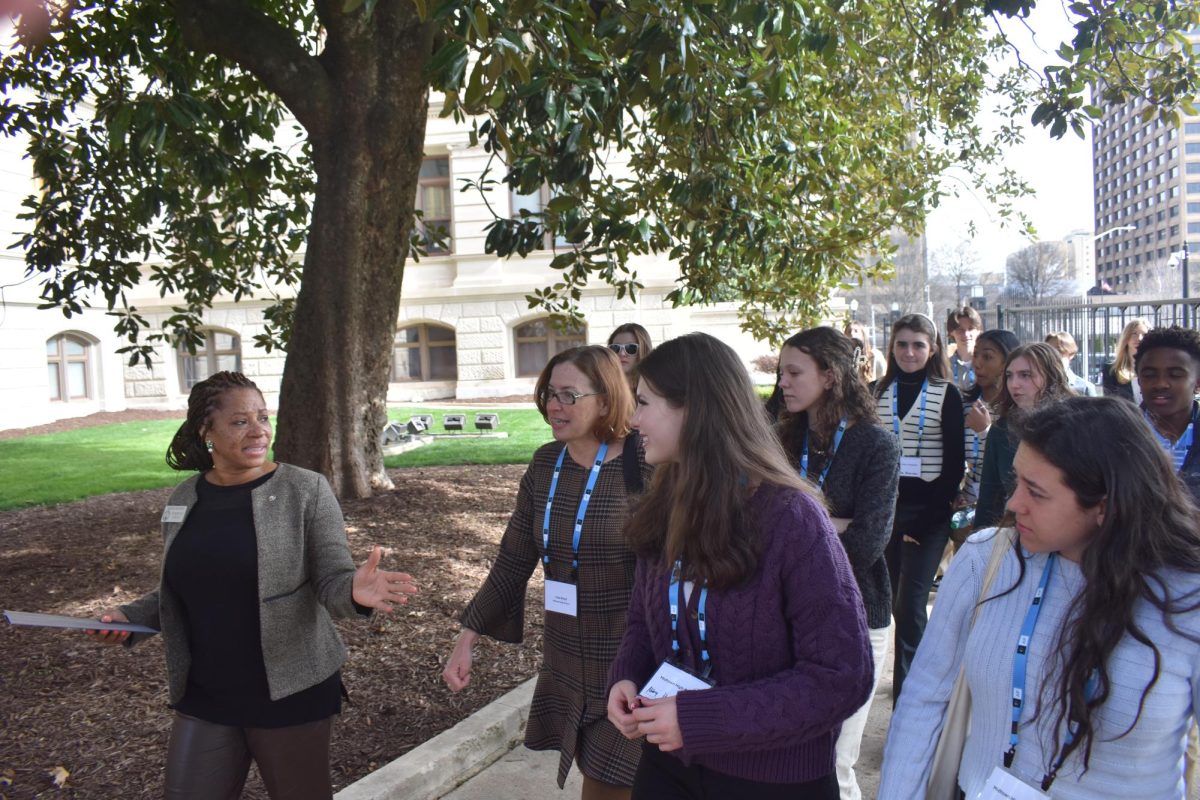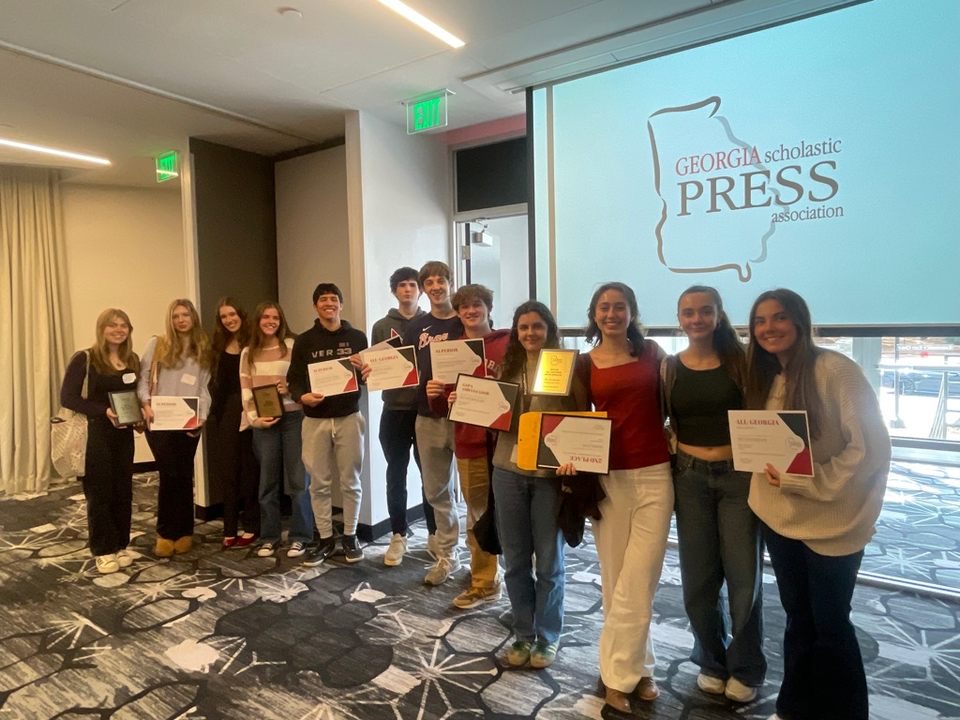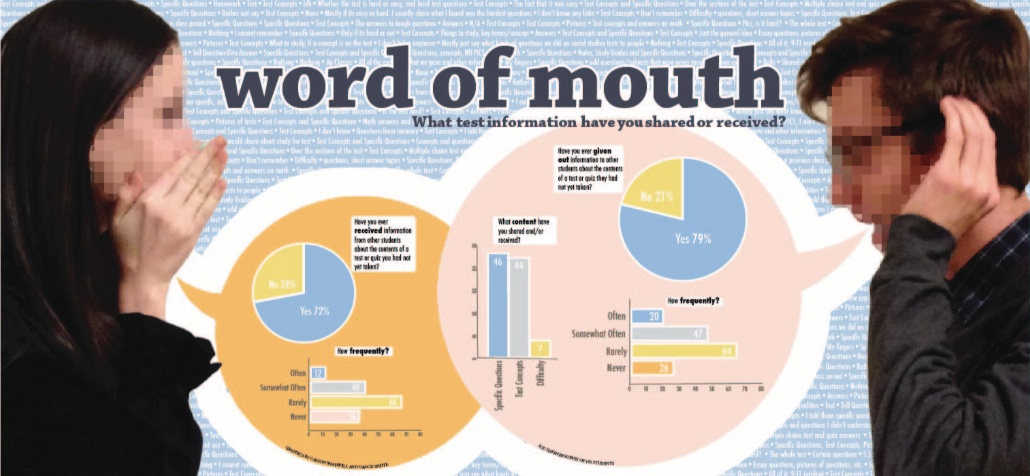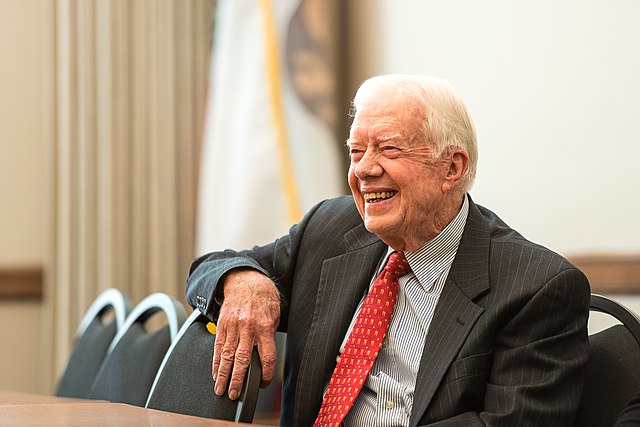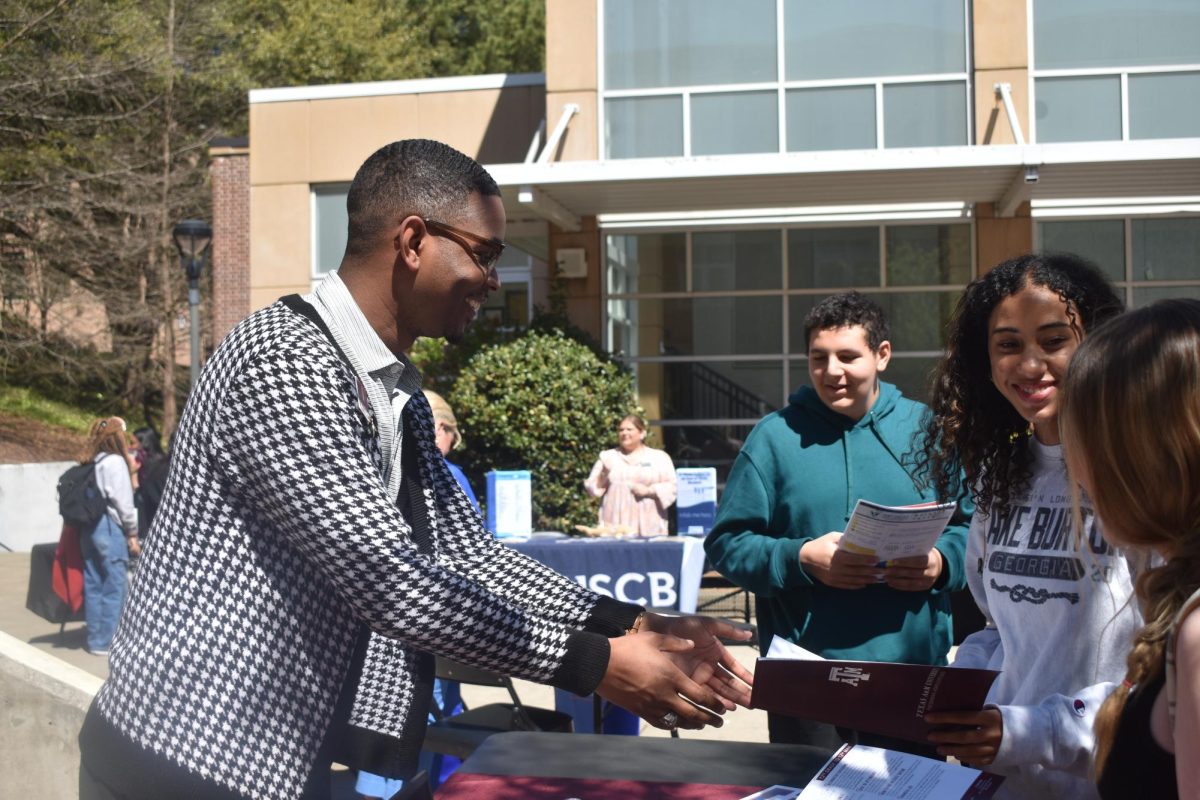AP English Language and Composition teacher Lisa Willoughby used to give the same test to her A-day and B-day classes. But then, she noticed a pattern in the grade distributions.
“I observed that the group that had the second day always did better [on the test] than the group that had the [test the] first day,” Willoughby said. “So initially I thought that maybe that class was stronger, and I didn’t act on it immediately.”
One day, Willoughby said she witnessed two students sharing information about the reading passage on a quiz. After confronting the students, she realized they did not think sharing information was really cheating.
“My policy now is to make changes to the [tests for different days] so that the benefit is diminished for anyone who shares information,” Willoughby said.

For those unfamiliar with Grady’s schedule, four classes are taken on an A day and four different classes are offered on a B day. Most core classes have sections that meet on both A and B days.
In order to determine whether the difference in scores Willoughby noticed was widespread, The Southerner conducted a schoolwide investigation comparing scores for tests that were administered to both A and B days.
A study was conducted on 13 assessments from seven teachers. The results revealed that of the 693 test scores, the tests administered on the second day had scores 4.48 points higher than that of the classes taking the assessment the first day.
AP Statistics teacher Andrew Nichols commented on what the study suggests for classes at Grady.
“This is evidence that under certain circumstances, it does seem that the following day does seem to have an advantage over the leading day class,” Nichols said.
While the analysis confirms statistically significant increases in second-day test scores when compared to first-day test scores, the analysis by itself cannot conclude that the reason for the difference in test scores is communication between students. It is possible that any number of lurking variables could be the reason for the higher scores. For example, higher test scores on the second day a test is administered may occur because students who take tests on the second day have more time to study.
In order to discern the true cause of the difference, The Southerner conducted a survey of 165 students asking them if they have shared or received information on tests in the past.
The survey showed 79 percent of students surveyed had received information from other students about the contents of a test or quiz they had yet to take. Of the students surveyed, 72 percent said they had revealed the contents of a test or quiz to other students.
When asked what information they shared or received, specific questions (27.9 percent) and test concepts (26.7 percent) were the most common answers from student respondents.
Senior Sam Holder said that based on his personal experience, he believes the percentage of students who share or receive information between classes is actually higher than the survey revealed.
“It is rampant,” Holder said. “I am sure that there is a clear sharing of information across the days. A days will tell the kids on B days; B days will tell the kids on A days.”
Senior Jeffrey Cox, who shares this opinion, thinks all students at Grady have shared or received information about a test at one point in their high school career.
“If you don’t want to be involved, you have to actively try to not be involved,” Cox said.
Sophomore Chris Brown said he has seen information sharing on every test he has taken.
“Typically [I see the sharing of information] in AP classes and in math and science classes,” Brown said. “I see that more because those are the harder tests.”
Physics teacher Jeff Cramer does not believe that information sharing contributed to higher test scores.
“I found that even if I give an open book test where everyone in the class can help each other, I get the same distribution of grades,” Cramer said. “The same people still make high grades; the same people make lower grades, so I never worry about [communication between students] too much.”
Cramer said he has a clear way to see if students who took the test on the first day spoke to those who had yet to take it.
“The way that you can tell that happens is when the B class, for example, comes in and asks you a question before the test starts,” Cramer said. “[The student would say something similar to] ‘Oh I had one thing I wanted to clarify,’ and it happens to be exactly a question that’s on the test. And that has happened before.”
Latin teacher Scott Allen has witnessed students sharing information on several occasions.
“I hear students asking, ‘What was on the test in such and such class?’” Allen said. “I mean, I hear that. I hear people asking in the hallway.”
Allen said he has noticed a distinct pattern in the students who are most likely to share information.
“Really super high-achieving students do it, I feel like, at a higher rate than students who achieve averagely,” Allen said.
The Southerner’s study of nearly 700 test scores on 13 different examinations could not determine whether information sharing is more common in AP and honors classes.
The investigation was approved by the Director of Research and Evaluation for School Improvement, Rubye Sullivan, and Sue Swanson. Sullivan and Swanson provided assistance throughout the investigation.
When the test scores of teachers who offered retakes on their tests are removed from the sample, the difference of test score averages between the two days rises to 5.63 points.
The data showed the difference for seven of the 13 assessments as statistically significant through a two sample t-test, a statistical analysis used to determine whether the means of two populations differ.
For something to be “statistically significant,” the probability of a difference as large or larger than the difference observed must be less than 5 percent.
“It is significant if you saw [a statistically significant difference] at all,” AP Statistics teacher Andrew Nichols said. “But once you start seeing it in, well this is now a majority of the cases you looked at, it becomes something where maybe this is a trend, maybe it’s not a universal fact, but maybe it’s a trend.”
For statistical analysis to be valid, however, several conditions must be met. The samples of test scores for the two days must be representative, independent and large enough in order to statistically analyze the data.
But Nichols believes that, in this case, the statistical analysis is valid.
“All the conditions are met,” Nichols said.
Allen said all of his classes are the same course on the same day. For example, both Latin 3 classes are on B days. Because of this, he is not concerned about students sharing information as much. But if he were in a situation to have to worry about communication between students?
“Four points or higher,” Allen said. “That’s when I would have to seriously consider writing a separate exam for the B day kids as opposed to the A day kids.”




